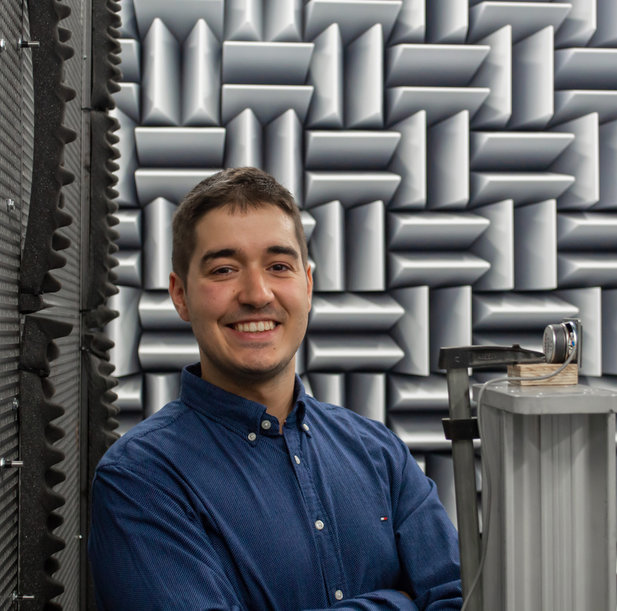Veni grant for ‘Listen to the future: Enabling sustainable aircraft technologies by minimizing their noise annoyance’
Five promising researchers from TU Delft's Faculty of Aerospace Engineering have been granted Veni funding by the Dutch Research Council (NWO). This funding, totaling EUR 280,000 for each recipient, will empower the awardees to advance their individual research concepts over the course of the upcoming three years. Today we introduce Roberto Merino Martinez.
Research
New technologies required to achieve environmentally-sustainable aviation (e.g. electric propulsion) also need to cause minimum noise annoyance to be socially acceptable. Roberto proposes an innovative perception-driven design methodology that represents a paradigm shift with respect to state-of-the-art approaches, which first design and seek noise-attenuation strategies afterward. He includes, for the first time, human perception of sound within aeroacoustic research and aircraft design process by evaluating novel sound-quality metrics and performing psychoacoustic listening experiments. This approach will reduce the noise impact of aviation in local communities and can be extended to other sectors, like drones and wind turbines.

Roberto Merino Martinez
“Receiving this Veni grant represents a very encouraging recognition of my scientific work and enables me to devote more of my time to purely research activities. The fact that an astonishing number of 5 Veni grants have been awarded to our faculty clearly indicates the relevance of our collective work towards achieving sustainable aviation. Or, more generally, sustainable aerospace engineering.”
Human perception
“In a nutshell, my goal is to minimize the noise annoyance of aircraft that local communities suffer, with a special focus on the future revolutionary technologies required to reduce aviation's contribution to climate change. The main challenge is how to include human perception in the aircraft design and noise assessment processes since current methods normally use outdated metrics, which fail to do so. Overall, I am working towards ensuring fully sustainable aviation, i.e. not just environmentally but also socially, to consider public acceptance of new aircraft technologies.”
Contribution
“This Veni has a very high potential for societal impact since it will improve the living environment and quality of life of communities near airports (who now experience annoyance and noise-related health issues, like sleeping problems or cardiovascular diseases) and promote the aviation industry by enabling a sustainable air traffic growth (currently limited by strict environmental noise regulations).”